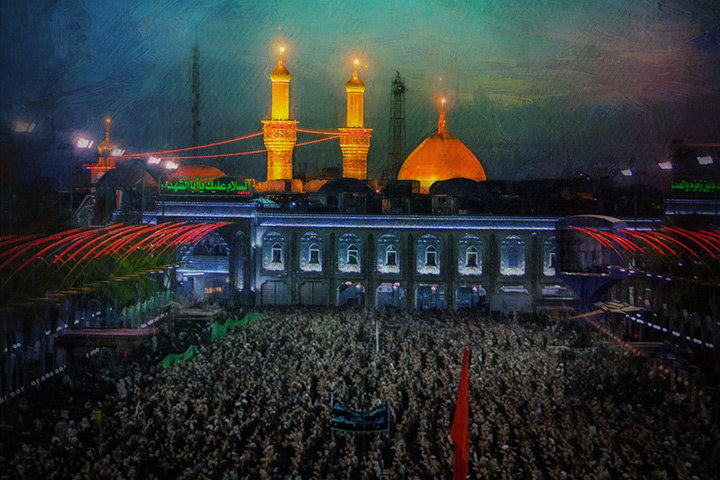Ziyāra or pilgrimage (literary: visiting) is a religious term meaning being at the graveside of the deceased and especially the righteous and those highly accepted by God and particularly Prophets and Imams, sometimes accompanied with special rites. Ziyāra from the root “zawara”, literally means intending, desiring and inclining to go to that which is to be visited and departing from everything else. As an expression, it means visiting and meeting someone or visiting a place.
Ziyāra implies being next to the visited, be it a person or a place, and departing from other than that, and it necessitates the veneration of a person or a place connected to a holy matter.
This article investigates the theological bases for ziyāra relying on the Qur’an and hadith, as well as evaluating the arguments for and against it.
Pilgrimage in general has been accustomed in human societies, as it is a tradition arisen from a human inner need and desire related to the belief of afterlife and the possibility of establishing an inner relation with a beloved person. In Islamic teachings too, this tradition has not been fully rejected rather attention has been paid to correction of methods and certain views and to prevention of deviations in its regard. Therefore, ziyāra has been common among Muslims too and still is. Some have even specified permissibility of ziyāra and also its ‘state of being prescribed as recommended’ (istehbab) as a matter of consensus amongst scholars. Only a small group among Muslims, i.e. the Salafis, has opposed some cases of ziyāra on the ground of considering it as a polytheistic act.
In religious statements, much emphasis has been placed on going to visit the great personages and scholars of religion and also on going to visit the believers while they are living. Going to the ziyāra of the tomb of the Messenger of God (Peace Be Upon Him & His Progeny, PBUH & HP), ziyāra of the tombs of the Imams (Peace Be Upon Them, PBUT), ziyāra of the graves of martyrs and religious scholars and ziyāra of the graves of parents and others who have passed away are all examples of ziyāra.
According to Islamic traditions the ziyāra of the graves of the deceased, particularly the religious dignitaries, is permissible and effects such as gaining the benefit of their intercession is of its results; but the Wahhabis and Salafis and other adherents to this sectarian issue have regarded this practice as polytheistic and have opposed it. Besides having different teachings regarding many matters with the Shi’ah, they have particularly a different opinion in regard to ziyāra and its resulting effects.
Source:
Pilgrimage “Ziyāra” from the Viewpoint of the Holy Quran, Hadiths and Theological Discourses-An Entry from Encyclopaedia of the World Islam [p 8-9].
Author: Maryam Kiani Farid
Translated by Mojganeh Saffarnia.

